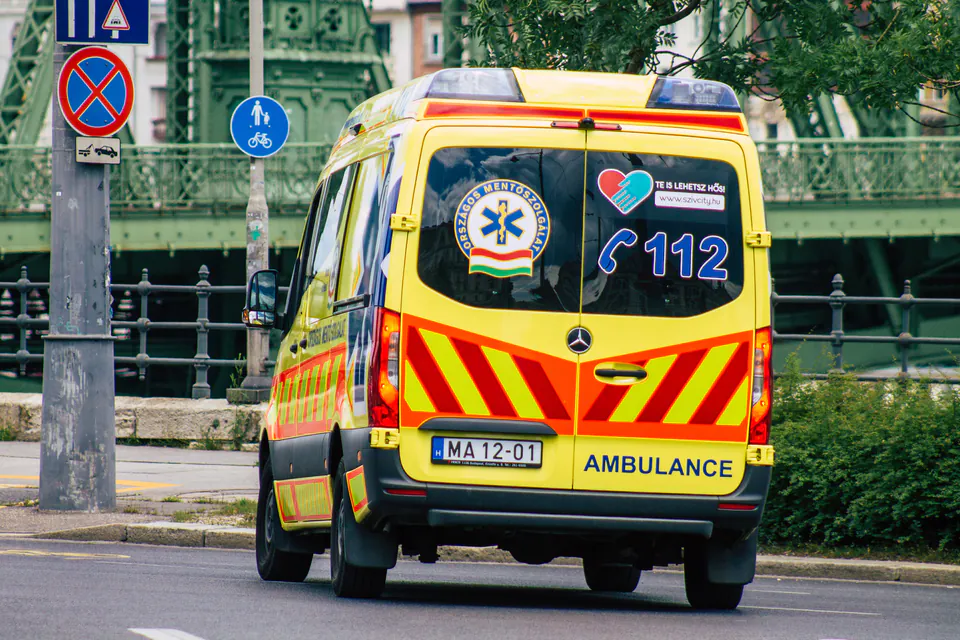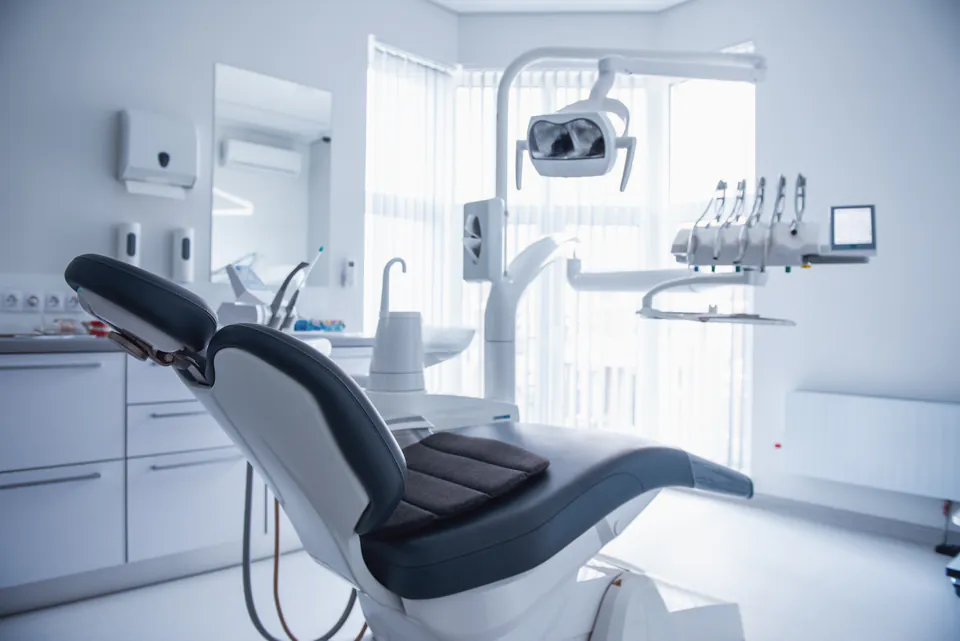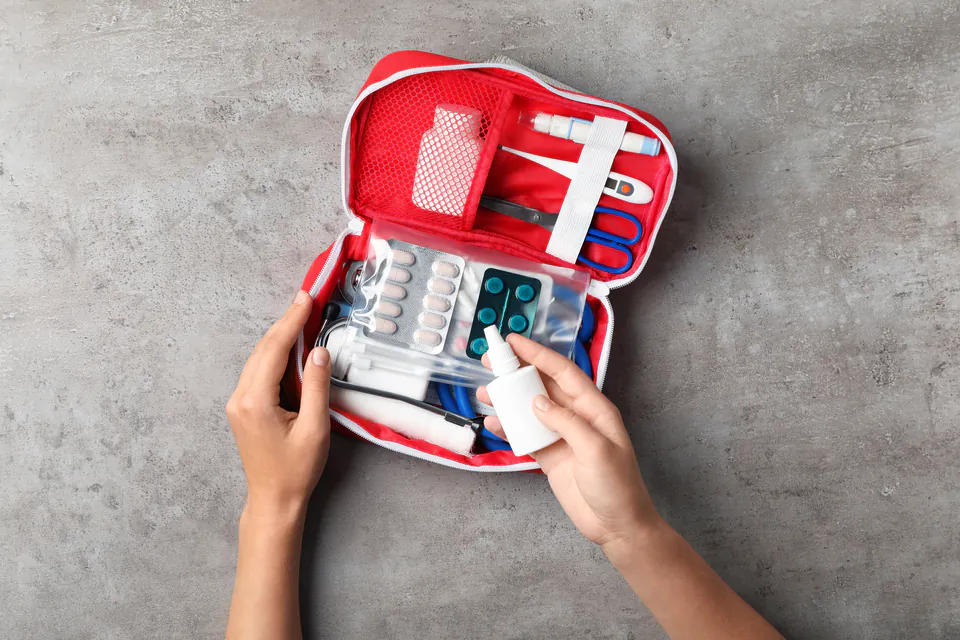Healthcare and Medical Services for Travelers in Budapest
Budapest has really good healthcare for travelers. You can find everything from public hospitals to private clinics where staff speak English. When we first visited, we were impressed by how well-organized the medical system is here. Getting to know the basics before you arrive will help you feel more relaxed about your trip.
Emergency Medical Care
If you have a medical emergency in Budapest, call 112. This is the emergency number for all of Europe. The people who answer usually speak English and they'll send help right away. You can also call 104 just for an ambulance. Here's something we found reassuring - everyone gets emergency first aid, no matter where you're from or if you have insurance.
Budapest has several hospitals with emergency rooms that handle tourist situations well:
- Péterfy Sándor Hospital and Casualty Center (Budapest 1081, Fiumei Street 17) – This one's in Pest, close to Keleti train station
- Szent Imre Hospital (Budapest 1115, Tétényi Road 12-16) – On the Buda side

When you need emergency care, call your travel insurance company right after you get medical help. Emergency first aid is free for everyone, but if you need more treatment, you'll probably have to pay unless your insurance or EU health card covers it.
Private Healthcare Options
Budapest has tons of private clinics that focus on helping international patients. The doctors speak English and the facilities are modern. We always recommend these if you need medical care because you'll get seen much faster than at public hospitals and the environment is way more comfortable.
Top Private Medical Facilities
- FirstMed Centers – At Hattyú utca 14, 1015 Budapest. They do primary care and specialty stuff, plus they have 24-hour phone help (+36 1 224 9090)
- Health Guard Hungary – These guys do 24/7 mobile medical services. They'll come to your hotel or wherever you are with English-speaking doctors
- Dr. Rose Private Hospital – Really nice healthcare services with doctors on call (+36 1 377 6737)
- Swiss Clinic – They have several locations with different healthcare services and an emergency line (+36 30 992 0387)
- Rózsakert Medical Center – Staff speaks multiple languages and they do all kinds of treatments

A lot of these private places take international insurance and some will bill your insurance company directly. If you don't have insurance that works here, you'll need to pay when you get treatment. But here's the good news - it costs way less than what you'd pay in Western Europe or North America.
Finding Pharmacies
Pharmacies in Budapest are called "gyógyszertár" or "patika" in Hungarian. You can spot them easily because they have green cross signs. They're all over the city and many stay open late. Some are even open 24 hours.

If you need prescription meds, you'll need a valid prescription from a doctor. Basic stuff like painkillers and cold medicine you can get without a prescription. But for stronger medications, you definitely need a prescription. We learned that if you need to refill something from home, you might have to see a local doctor first.
Here are some 24-hour pharmacies in Budapest:
- Széna Tér Patika
- Szűz Mária Gyógyszertár
- Teréz Gyógyszertár
- Déli Gyógyszertár
Your hotel can tell you where the closest pharmacy is. Also, other pharmacies usually post info in their windows about which ones are open when they're closed.
Insurance and Costs
Medical care in Budapest costs much less than in Western Europe or North America. But you still really need good insurance coverage when you visit.
EU Citizens
If you're from an EU country, bring your Global Health Insurance Card (GHIC) or European Health Insurance Card (EHIC). This gets you into state healthcare for medically necessary stuff. But these cards don't cover private care, non-urgent treatments, or things like medical evacuation.
Non-EU Visitors
For everyone else, we can't stress this enough - get comprehensive travel insurance that covers medical expenses. Without insurance, costs can really add up fast, especially if you go to private clinics.
Sample Healthcare Costs in Budapest
| Service | Approximate Cost (EUR) | Notes |
|---|---|---|
| General Practitioner Consultation | 110 | Private clinic, standard visit |
| Prescription for Lost Medications | 80 | Private service |
| Emergency Room Visit (without insurance) | 50-200 | Depends on treatment needed |
| Private Hospital Stay (per day) | 100-300 | Varies by facility and care level |
| Online Consultation | 20+ | With English-speaking doctor |
These costs are way lower than what you'd pay in many Western countries, but they can still mess with your travel budget if you don't have proper insurance.
Medical Tourism
Budapest has become a huge destination for medical tourism. People come here especially for dental work, cosmetic surgery, and other procedures you plan ahead. The mix of high-quality care and lower costs brings thousands of visitors every year.
Popular Medical Tourism Services
Dental care is the big thing here. Budapest gets 60,000-70,000 dental tourists each year. Treatments like implants, crowns, and bridges cost 40-70% less than in the UK, US, or Scandinavia. We've met travelers who planned their whole vacation around getting dental work done here.

Cosmetic surgery is another popular choice. Procedures like facelifts cost around €2,000 compared to much higher prices elsewhere. People also come for orthopedic surgery, eye treatments, and fertility procedures.
If you're thinking about medical tourism in Budapest, do your research carefully and pick places with good reputations for treating international patients.
Practical Tips for Travelers
Before you come to Budapest, here's what we recommend doing to be ready for any healthcare needs:
- Check if your destination can handle any specific healthcare you might need
- Get comprehensive travel insurance that covers medical expenses, emergency evacuation, and getting you home if needed
- Bring enough of any prescription medications in their original bottles
- Keep copies of your prescriptions and a letter from your doctor for any controlled medications
- Save emergency contact numbers and insurance info in your phone and write them down too
- Learn some basic Hungarian medical phrases or get a translation app

If you're staying for a long time, think about registering with a private clinic that has English-speaking services. This makes getting care much easier if you need it.
Health Precautions
Hungary is pretty low-risk for travelers. You don't need any specific vaccines to enter the country. Just make sure you're up-to-date with your regular vaccinations before your trip.
Here's something good to know - tap water in Budapest is totally safe to drink. It meets EU standards. We always refill our water bottles from the tap, which saves money and cuts down on plastic waste while you're walking around the city.
The CDC and WHO say you might want to consider vaccines for hepatitis A and B for some travelers, especially if you're staying longer. If you plan to spend time in rural areas or forests, especially when it's warm, you might want to get a tick-borne encephalitis vaccine.